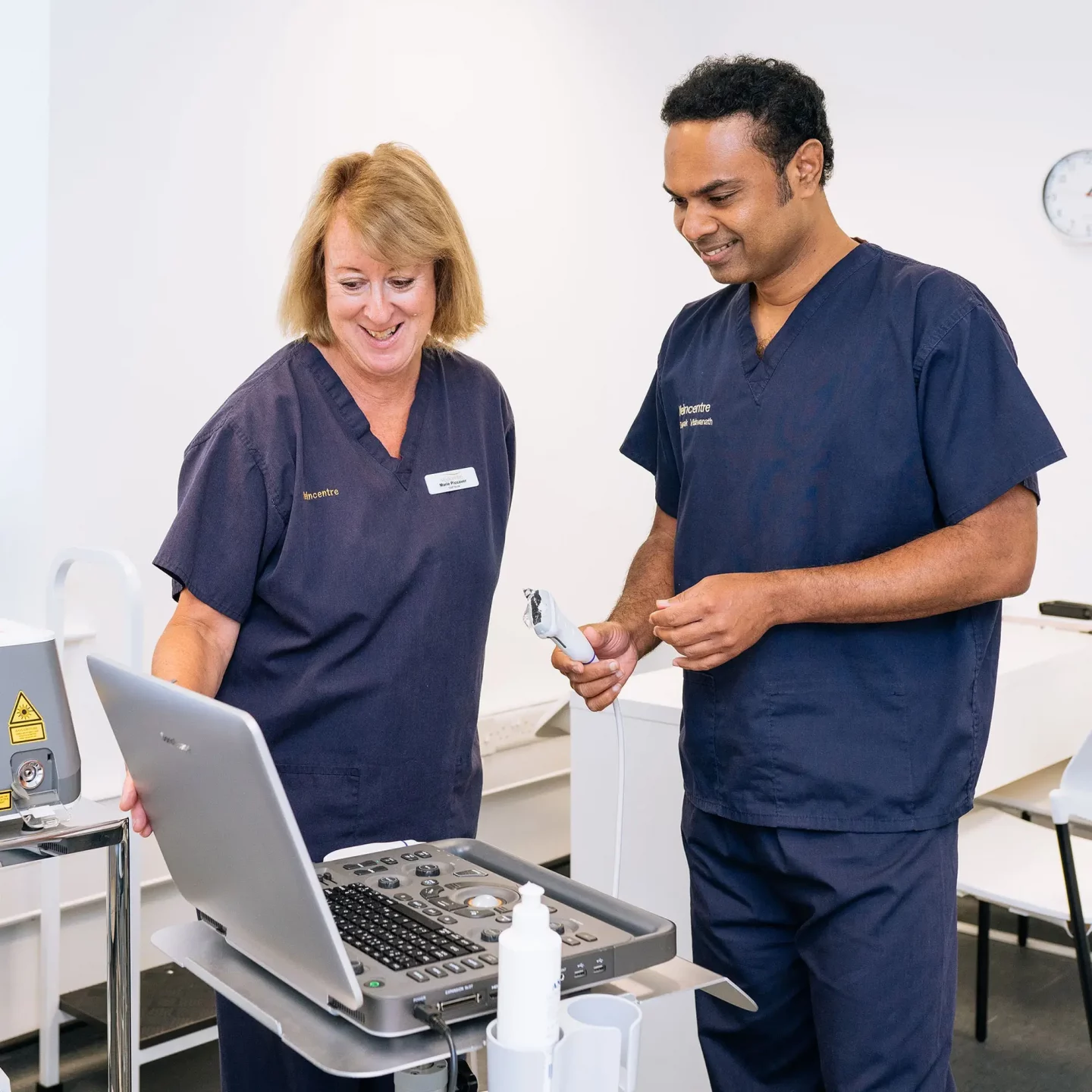“By highlighting the unmet needs of venous disease, this BMJ article should focus the minds of clinicians and patients to prompt more timely referrals to vascular services”, says Dr Anthony.
How important is it to treat venous ulcers early and what do we offer ulcer patients at Veincentre?
There are a few takeaways from the article, firstly that community treatment of venous ulcers is costing the NHS £1bn-£2bn annually. This cost would be largely avoidable, if patients were referred for early treatment of underlying venous hypertension and varicose veins.
At Veincentre, we have a dedicated treatment pathway for people suffering from venous ulcers, enabling patients to receive specialist care in a timely and cost-effective manner.
We firstly rule out any arterial problem causing the ulcers by assessing for arterial insufficiency, using ABPI measurements (measuring the difference between the arterial blood pressure in the upper and lower limb). With confirmation that the ulcer is venous, treatment is carried out to treat first the underlying varicose veins. The reduction in venous hypertension and restored healthy blood flow leads to the healing of the ulcer.
The article explains that guidance from the venous forum of the Royal Society of Medicine recommends that people with venous ulcers should be seen by a vascular specialist within two weeks. This is something that we have always worked from, as we believe it’s vitally important to see and treat anyone with venous ulcers as quickly as possible.
“Most of our patients self-refer but we are happy to take referrals from GP’s. In patients with venous ulcers, we like to work closely with the patient’s GP and community nursing team to ensure coordinated treatment” says Dr Anthony.
How many people have been unable to access treatment for varicose veins and how have we tackled this at Veincentre?
Another point of the article focuses on the limited access to treatment for people with symptomatic varicose veins, and the wide geographical variation in access to treatment across the country. Approximately 40,000 people a year in England were unable to access treatment. We have been working hard over the last few years to open more clinics in all areas of the UK, providing treatments at a fair price to be accessible to as many people as possible. With 1 in 3 adults suffering from varicose veins, there is extremely high demand for treatment, and we have so far treated over 50,000 people since we started.
The article goes on to discuss accessibility in more detail, saying that uncomplicated symptomatic varicose veins are a dilemma due to how common they are. Vascular services are often overstretched due to the need to treat limb threatening arterial disease as a priority over venous disease. As we specialise in treating varicose veins and thread veins, and only treat these conditions, we have the capacity to treat as many patients as possible with our 50+ team of vascular specialists.
What does Dr Anthony think about the importance of having treatment?
Dr Anthony says: “Some patients feel embarrassed about seeking treatment for their varicose veins, but this article highlights how important it is to get the correct treatment. Many patients we see with varicose veins are of course concerned with the cosmetic appearances, which we can certainly help with. But once patients start to get symptoms, such as aching or throbbing legs, and especially itching and varicose eczema, that’s a sign that venous disease is getting rapidly worse. and they are at risk of developing ulcers. We work hard to make sure we can offer appointments and treatments swiftly once a patient contacts us, wherever they live in the UK.”
We have previously worked with the NHS to treat patients on waiting lists to help to bring those under control and are continuing to expand into new areas to help as many people as possible.
The full British Medical Journal article is here if you would like to read more. For more information on our treatments, contact us here or on 01782 753960.

